Probably Aretha Franklin's best known song, Respect, was released in 1967 at the height of a tumultuous period in the battle for US civil rights.
But its anthemic demand – in fact a personal request – echoes down the ages to speak to people today, just as it did in the era of Martin Luther King Jr and segregation.
It is possibly why Barack Obama labelled her music as embodying the connection between African-American culture and the experiences felt by many throughout US history.
He told BBC Radio 4 the reason he would take her music to a desert island, over and above almost anyone else's, was because "she'll remind me of my humanity, what's essential in all of us. And she just sounds so damn good."

It could be because her life, born to the family of a philandering baptist minister and ending up the female artist with the most entries in the US R&B chart's history, in many ways exemplified the trials and fortunes of many from her background.
She was born in the spiritual home of R&B, Memphis, in 1942, to an itinerant preacher and a piano player and singer.
Before she was five, the family moved to Detroit where her father had been given the pastorship of a church.
But her childhood was not a happy one. Amid rumours of infidelity, her parents separated in 1948 and her mother moved to Buffalo with a son from a previous relationship. A few years later her mother was dead.
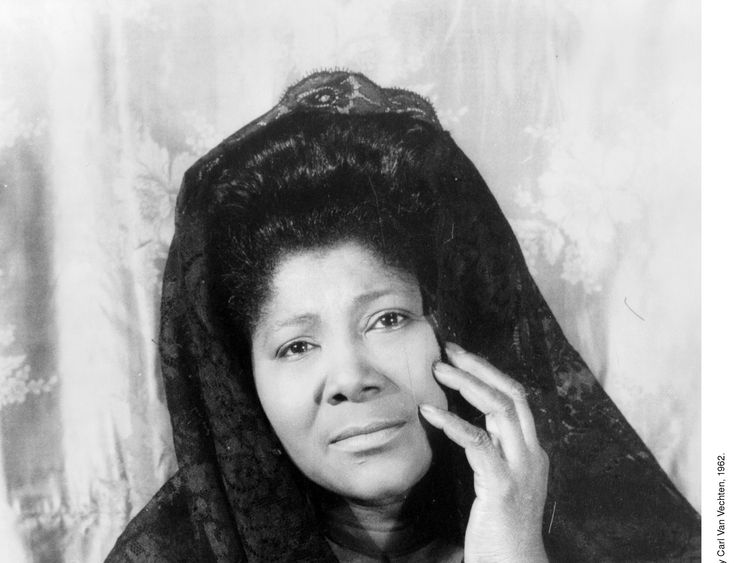
The job of looking after the young Franklin fell to several women, including one who was known as the "greatest gospel singer in the world", Mahalia Jackson.
The world she grew up in was one in which gospel singing took centre stage, and where the growing popularity of her father's driving sermons led to his mission being visited by various performers like Jackie Wilson and Sam Cooke.
The young Franklin would accompany her father on the road as he and other singers toured churches – moves that eventually led to her releasing gospel records herself.
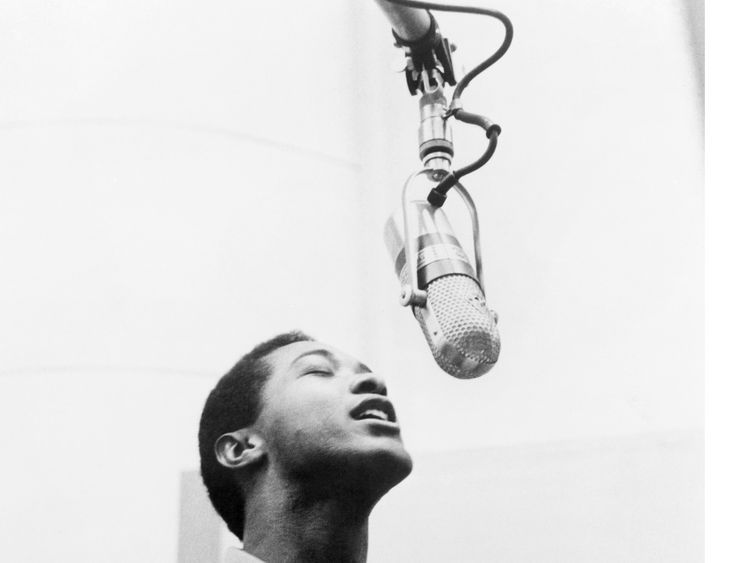
It may have been because of the unstable nature of life at home that she fell pregnant and had children twice before the age of 15.
At 18, she told her father she wanted to follow in Sam Cooke's footsteps and become a pop artist, and after she signed to Columbia she enjoyed a degree of success on the R&B chart.
She was managed by Ted White, a man she married in 1961 at the age of 19 and had another child with three years later.
White was described by a number of sources as controlling, dealing out domestic abuse on many occasions.
In 1970, after their marriage broke down, Jet magazine reported that White was investigated for shooting Sam Cooke's brother, who attempted to protect Franklin when her husband turned up at her house.
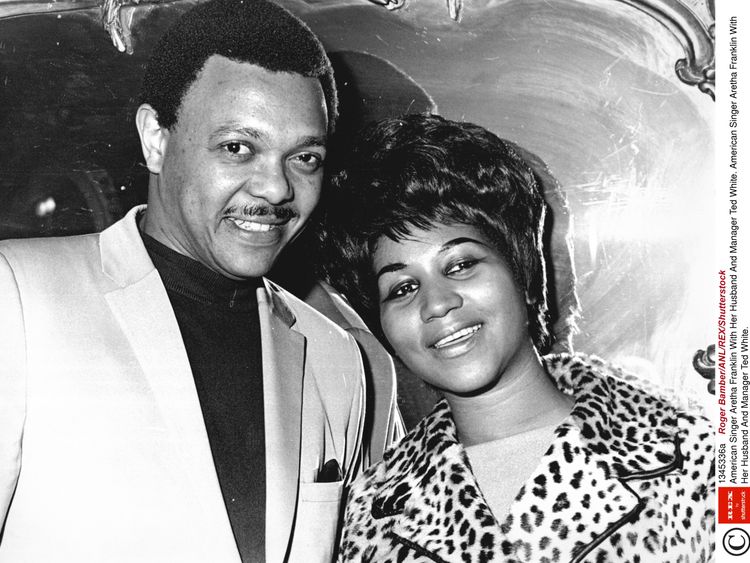
It was after a move to Atlantic in 1966 she achieved wider success, with her first single with the new label, I Never Loved A Man (The Way I Love You), reaching number one on the R&B chart and the top ten in the US pop chart.
It was closely followed up by an adapted cover of Otis Redding's classic hit Respect, which went to number one in the US and made the UK top ten.
The release of Lady Soul, in early 1968 – her 14th album – cemented her place in rock and pop history, with hits like Chain Of Fools and (You Make Me Feel Like) A Natural Woman entering the songbook for decades and (Sweet Sweet Baby) Since You've Been Gone showing Franklin herself could co-write big sellers.
A cover of Dionne Warwick's I Say A Little Prayer had similar success later the same year.
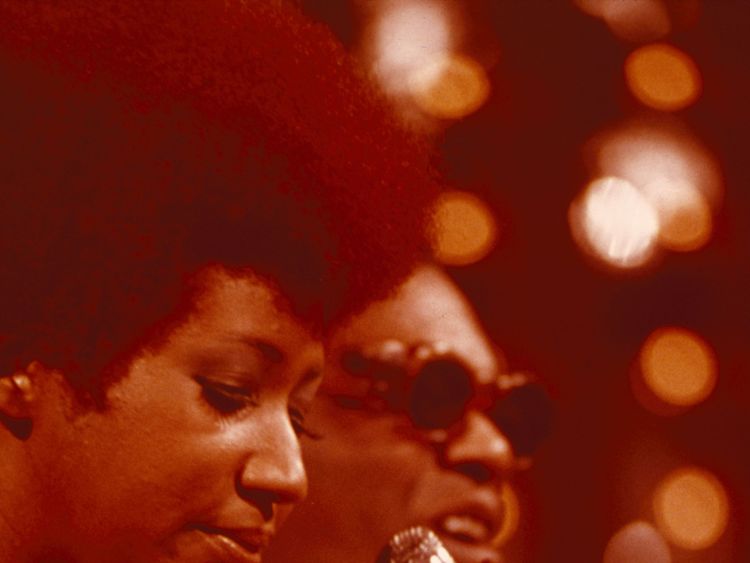
She married again in 1978, to actor Glynn Turman, but they also divorced six years later.
The 1980s were a period beset with family tragedy. Franklin's father ended up in a coma after being shot twice at his home and died five years later in 1984.
Franklin's brother Cecil, who became her manager after White, died of cancer in 1989, as did her sister Carolyn in 1988 – one of two sisters who regularly featured on her records.
Despite her hardships she managed to open up a new audience in the 1980s with the release of the Who's Zoomin' Who album and its accompanying hit, performed with Eurythmics, Sisters Are Doin' It For Themselves.
Two years later, she maintained her reputation, in the UK especially, with the George Michael duet I Knew You Were Waiting (For Me) – probably her biggest worldwide hit.

By 1979, she had already been given a star on the Hollywood Walk of Fame, and went on to be inducted into the Rock and Roll Hall of Fame in 1987, awarded a Grammy Lifetime Achievement Award in 1994 and the Presidential Medal of Freedom in 2005.
In 2013, Rolling Stone named her as the best singer of all time.
Throughout her later career, Franklin suffered accusations she was a diva to deal with.
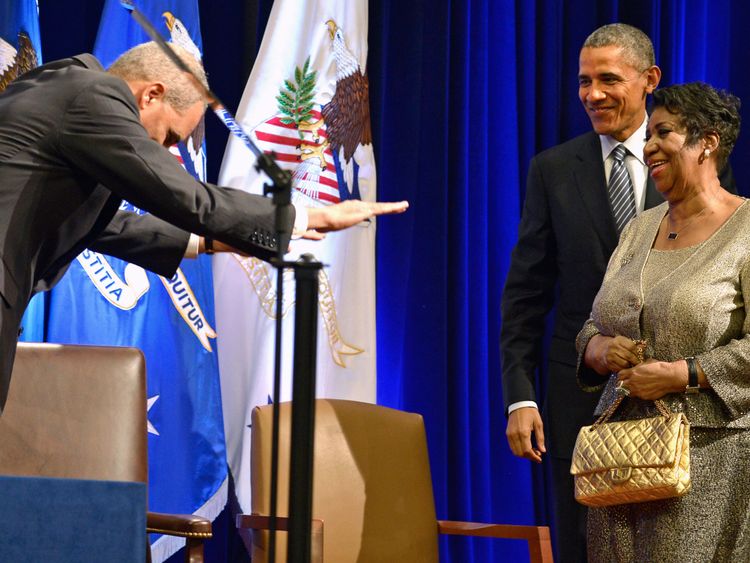
She was regarded as being single-minded in her determination to put her interests first, underlined by her leaving her first two children behind in Detroit with older relatives as she sought success musical elsewhere.
More from Aretha Franklin
Her biographer David Ritz, who told the New York Times she was not easy to interview, wrote: "Self-reflection was never Aretha's strong suit."
Perhaps she didn't need to be – it was all in her voice.
[contf] [contfnew] 
Sky News
[contfnewc] [contfnewc]





